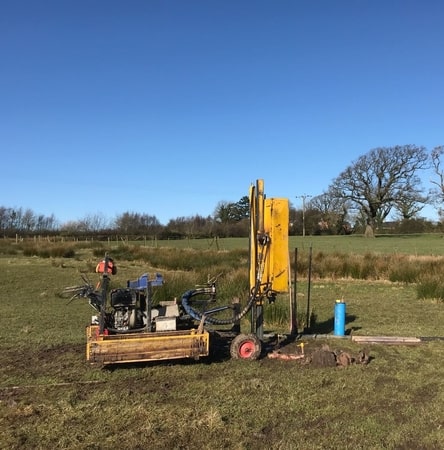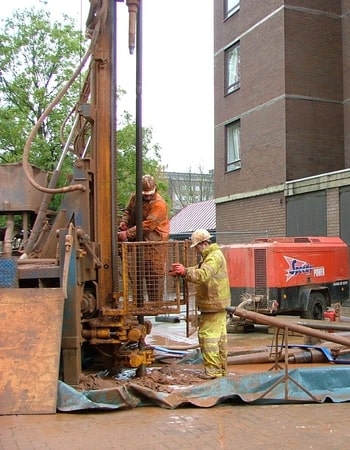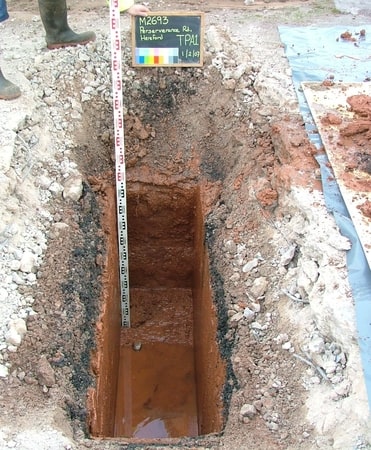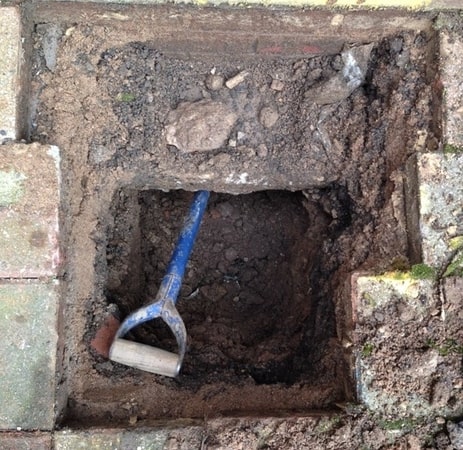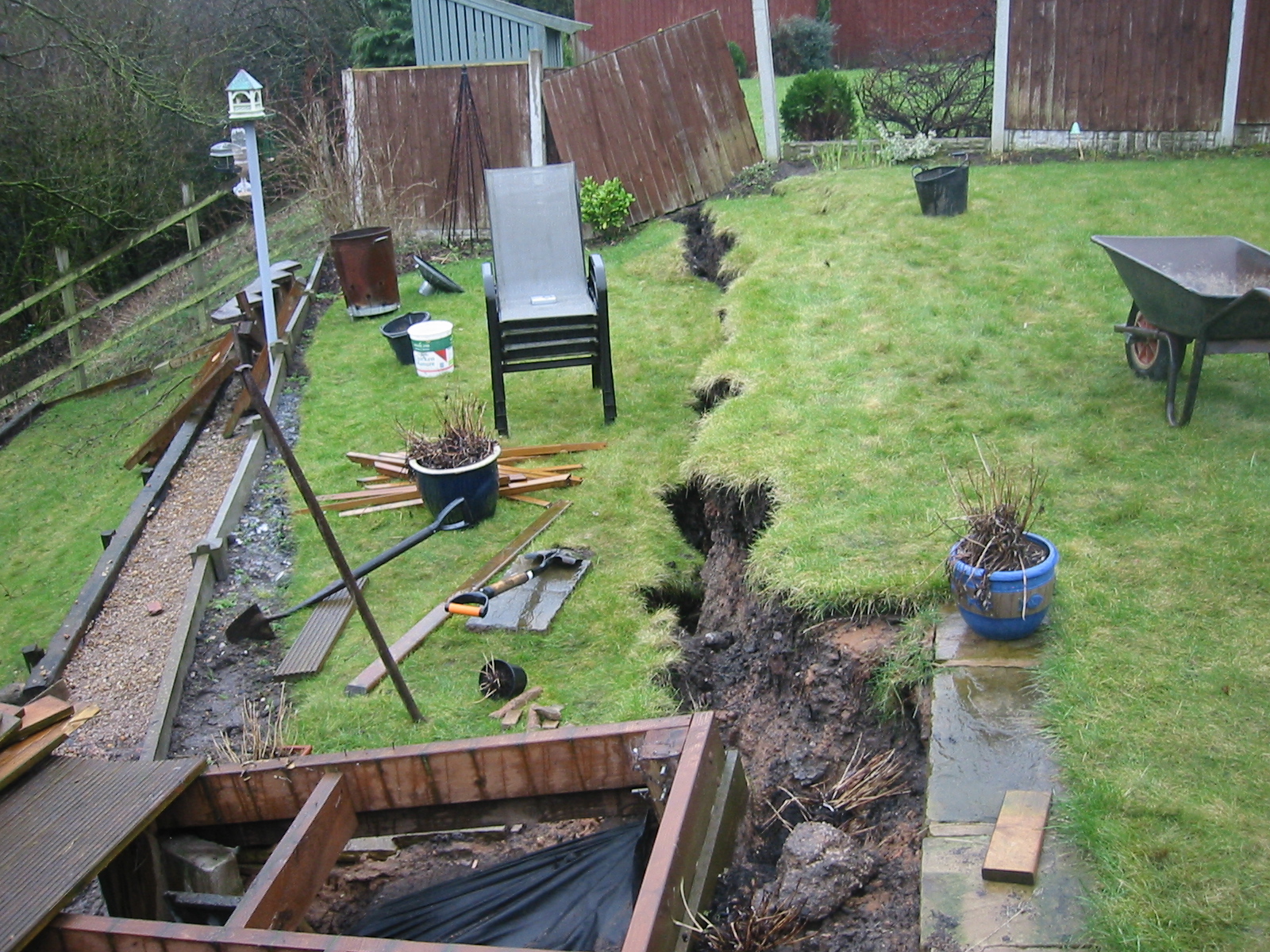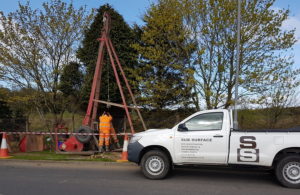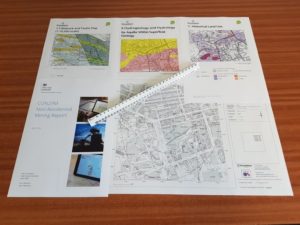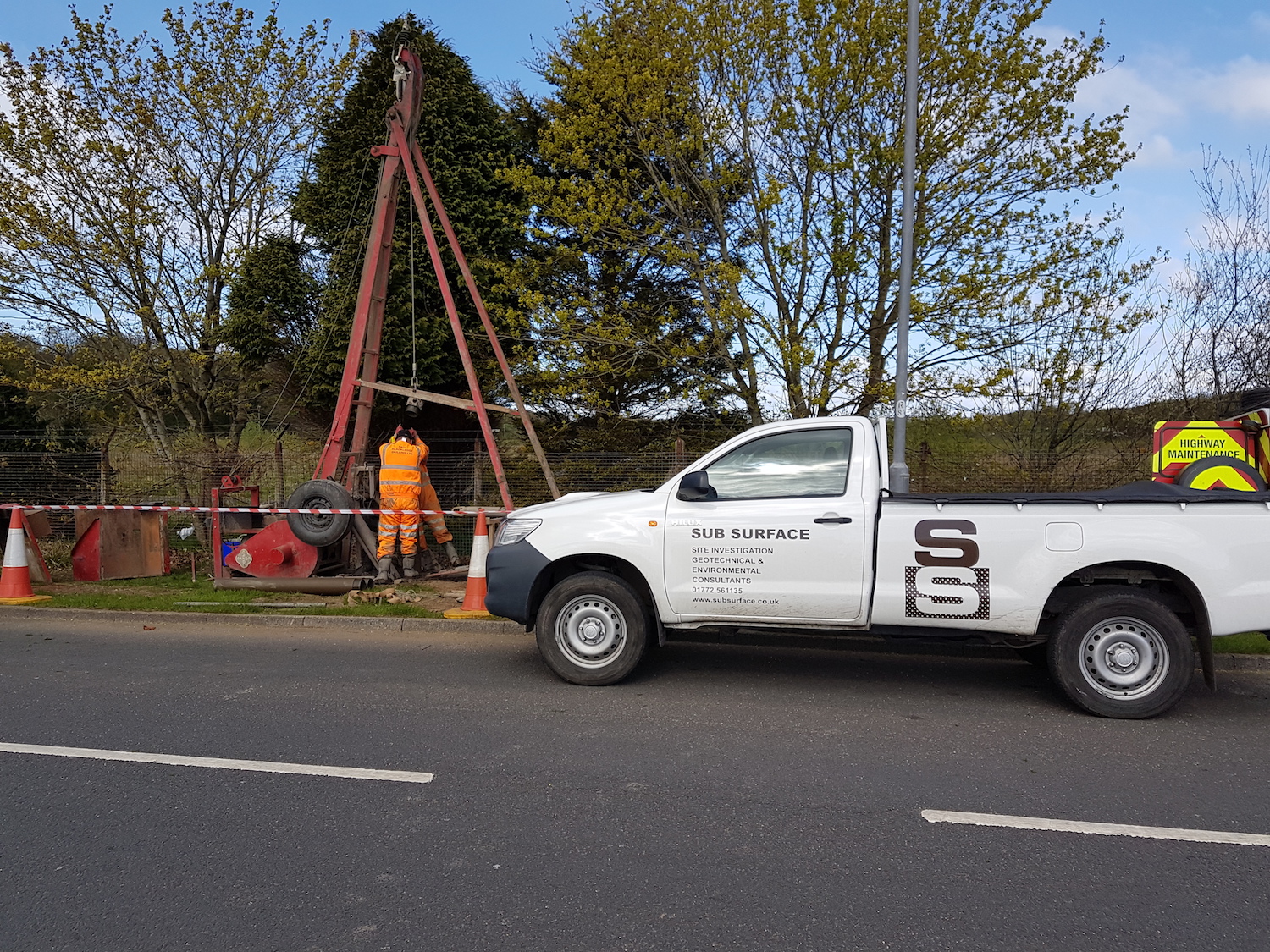
A Ground Investigation is an intrusive investigation to assess the soil, rock, and groundwater conditions to ensure safe and efficient construction. It provides critical geotechnical and environmental data to support foundation design, identify hazards, and meet regulatory requirements.
Sub Surface can design a site-specific Ground Investigation to satisfy the requirements of the Client, project requirements and any regulatory bodies. Our network of local offices across the UK allows us to provide a cost-effective service nationwide. Sub Surface caters for all project types and sizes from small residential extensions to large corporate/government infrastructure projects.
All our Ground Investigations are carried out in accordance with the UK Specification for Ground Investigation, British Standard Code of Practice BS5930 and British and European Standard BS EN 1997-2 (EC7). For Quality Assurance, all our drillers have an NVQ in Land Drilling from the British Drilling Association (BDA) and we are accredited by the BDA, Association of Geotechnical and Geoenvironmental Specialists (AGS), Constructionline and CHAS.
Did you know around 50% of commercial buildings and 37% of industrial buildings experience delays due to unforeseen ground conditions during construction, highlighting the significant impact such issues can have on project timelines and budgets.
Request a Ground Investigation quote from your Regional Sub Surface Office.

Ground Investigation for a Wind Turbine in Preston, Lancashire
The Ground Investigation Process
The ground investigation process is dependent on the project requirement and the requirements of the Client and regulatory authorities. The process for a combined geotechnical and environmental ground investigation typically involves the following stages:
- Phase 1 Desk Study
Ideally, most projects should start with a Phase 1 Desk Study and a walkover survey to provide:
-
- Review of existing data – Historical, geological and environmental setting of the site.
- Identify potential ground risks – contamination, mining, natural ground hazards, etc.
- Supplementary reports (where necessary) – Coal Mining Risk Assessment, Natural Cavities and Mining Appraisal, Detailed Unexploded Ordnance (UXO) Report.
- Allowing for a more targeted and cost-effective intrusive ground investigation
- Ground Investigation Design
Our experienced Contracts Managers will:
-
- Design a site-specific ground investigation tailored to your site and project requirements.
- Select the most appropriate investigation methods from the information available.
- Plan the location and depth of the boreholes, trial pits and other sampling and monitoring points.
- Produce a preliminary laboratory testing schedule based on the anticipated ground conditions and project requirements.
- Intrusive Investigation & Sampling
The intrusive ground investigation will consist of a combination of:
-
- Boreholes: Rotary, cable percussive or window sampling techniques used to obtain soil and rock samples and carry out SPT’s, CPT’s, hand shear vane tests.
- Trial Pits: Machine dug or hand dug to obtain soil samples and provide a greater visual assessment of the ground.
- In situ Testing: BRE 365 Soakaway Tests, Percolation Tests, CBR Tests, Plate Bearing Tests.
- Monitoring: Installation and monitoring of groundwater and gas monitoring standpipes.
- Laboratory Testing
Laboratory testing will be carried out following the ground investigation:
-
- Geotechnical Testing – Soil and rock samples undergo geotechnical testing at our in-house laboratory.
- Contamination Testing – Soil and water samples are sent for contamination analysis at a specialist ISO 17025 and MCERTS accredited chemical laboratory.
- Data Interpretation & Reporting
We provide a variety of different report types written in compliance with British and European Standards:
-
- Factual Report: A Factual Report presents raw data collected during the ground investigation without any conclusions or recommendations. This includes site description, Engineer’s logs, field results and laboratory testing results.
- Interpretative Report (most common): An Interpretative Report expands on the Factual Report to provide engineering analysis, expert interpretation, and recommendations based on the site findings. It will also highlight any remedial measures and/or further works, if necessary.
- Ground Investigation Report (GIR): A GIR is a detailed Factual Report giving information on the site description, history, walkover survey, field results, lab results, ground parameters and derived values. GIRs are more common for very large or complex infrastructure or Government projects where specialist Geotechnical Design Engineers are involved.
Is time critical for your project? Sub Surface can overlap the Phase 1 Desk Study and Phase 2 Ground Investigation saving clients’ valuable time.
Ground Investigation Techniques
There are various methods of intrusive Ground Investigation techniques, and each technique has its advantages and limitations. The technique used will be determined by the Client’s requirements, proposed development, site location, site access, anticipated geology, any Local Authority Requirements and when available, the findings of a Desktop Study. Some of the most common methods Sub Surface use include:
Further details and photographs, including specialist limited access drilling rigs, can be found on the individual pages: Cable Percussive Boreholes, Window Sampling, Rotary Drilling, Dynamic Probing, Trial Pits.
What’s included in our Interpretative Geotechnical Ground Investigation Reports
Every project and development is unique, however a typical Interpretative Report for a basic Foundation Assessment, would include:
- Site description
- Engineer’s Log
- In-situ Testing
- Laboratory Testing
- Shrinkage and swelling potential of clays/silts (cohesive strata)
- A Foundation Assessment
- Bearing Pressures and/or Pile Loads
- Floor Slab Construction
- Groundwater Information
- Concrete Classification – Design Sulphate (DS) Class and Aggressive Chemical Environment for Concrete (ACEC) Classification
Additional items commonly incorporated within our Interpretative Reports include:
- A Coal Mining Risk Assessment
- Earth Pressure Coefficients for Retaining Walls and Basements
- CBR Values for Roads, Car Parks and Hardstandings
- Percolation and Soakaway Tests
- Settlement Calculations
- Slope Stability Analysis
- Contamination Analysis
- Waste Classification
- Landfill Gas Assessment
It should be noted that when developing a brownfield site and many greenfield sites, the Local Authority generally apply a prerequisite on the Planning Conditions requiring a Phase 1 Desktop Study
All our Interpretive Reports are written to the current British Standards, Eurocode 7 Standards and National House Building Council (NHBC) Standards.
How much does a Ground Investigation Cost?
The cost of a Ground Investigation can vary significantly depending on factors such as:
- Scope of work
- Proposed development
- Size and location of the site
- Soil and geology in the area
- Depth of investigation
- Reporting and regulatory requirements
- And many more.
The Importance of a Ground Investigation
A Ground Investigation is essential for understanding the physical, geotechnical and environmental properties of a site prior to development and construction. Here’s why:
- Cost and Risk Reduction
- Unforeseen Ground Conditions – Significantly reduce the risk and impact of unforeseen ground conditions that could lead to expensive delays and redesigns during the construction phase.
- Sustainable Solutions – Accurate geotechnical and environmental data to avoid overdesigning, reduce waste and provide sustainable development solutions.
- Ensuring Safe and Structural Stability
- Ground Conditions for Foundations – Accurately identifying the strength, composition and bearing capacity of the ground is essential for all construction projects including for foundations, piling, ground improvement, retaining walls, earthworks, slope stability, road design, dewatering, sewer construction and tunnelling.
- Prevent Foundation Failures – subsidence, landslides and costly remedial works.
- Identifying Ground Hazards
- Contaminated Land – Soils, groundwater, landfill gas, radon.
- Mining and Extraction – Coal mining, non-coal mining, brine extraction, gypsum extraction, tin mining, clay mining.
- Natural cavities and sinkholes – Sinkholes, swallow holes, voids, solution pipes from weathering of chalk and limestone.
- Relic structures – Historical buildings and structures which may cause difficulties during excavations.
Good practice is to identify the risk of ground hazards through desk-based reports such as a Phase 1 Desk Study, Coal Mining Risk Assessment, Natural Cavities and Mining Appraisal. These risks can then be investigated appropriately during the ground investigation.
- Environmental Protection
-
- Environmental Status – Determine the environmental status of a site to ensure it is safe for the proposed land use by conducting a Phase 2 Ground Investigation for contamination analysis, landfill gas assessment, waste classification and waste disposal, where necessary.
- Environmental Impact – Allows for sustainable development by reducing the environmental impact.
- Meeting Legal & Regulatory Requirements
-
- Regulatory Bodies – a ground investigation is generally required for planning permission and compliance with UK Building Regulations and Warranty Providers.
- British and European Standards – Ensuring compliance with British and European Standards. For example, BS5930 BS EN 1997-2 (EC7) for geotechnical investigations.
- Required for Specific Projects
-
- Housing, Commercial and Industrial Developments > Ensure safe development and stable foundations.
- Infrastructure Projects > Critical for roads, bridges, tunnels.
- Basement Construction > Assess the ground conditions and groundwater levels for suitable construction method.
- Land purchases > Essential risk assessment before investment to assess the potential risks and liabilities a landowner would inherit.
Benefits of Choosing Sub Surface
Founded in 1972 and with over 50 years of experience, Sub Surface are recognised as one of the UK’s leading independent firms specialising in Geotechnical and Environmental Ground Investigations Services.
At Sub Surface, we are dedicated to Building Better Through Continuous Improvement. By delivering high quality geotechnical and environmental ground investigation data and solutions, we empower our clients with the information they need to develop safer, stronger and more sustainable developments.
We provide a local service through our network of local offices based in Preston (North West), Ossett (North East), Tipton (Midlands) and High Wycombe (South East). This ensures our clients receive a personal and high-quality ground investigation service at a cost-effective price.
Our highly experienced and professionally qualified team include Chartered Civil Engineers, Chartered Geologists, Chartered Environmentalists and a Qualified person under CL:AIRE DoW:CoP. Sub Surface and our dedicated team are also members of professional institutions and industry bodies including the Institution of Civil Engineers (ICE), Institution of Environmental Sciences (IES), The Geological Society, Association of Geotechnical & Geoenvironmental Specialists (AGS) and British Drilling Association (BDA).
Request a Quote
If you would like a quote, please contact your Regional Sub Surface Office and email the following information (where necessary/available):
- Project requirements
- Site Location Plan
- Existing Site Plan
- Proposed Development Plan
- Phase 1 Desk Study
- Planning Conditions
For more information about Ground Investigations, read our blog post… What is a Site Investigation Q & A’s
View some of our Related Blog Posts:
What is a Site Investigation?
What is a Site Investigation? A Site Investigation is an intrusive investigation aimed at assessing [...]
Jun
What is a Phase 1 Desk Study?
What is a Phase 1 Desk Study? A Phase 1 Desk Study is a preliminary [...]
Aug
Site Investigation for Scunthorpe United’s Proposed Stadium (Large Scale)
JOB: SCUNTHORPE UNITED FC’S PROPOSED STADIUM – IRON ARENA CLIENT: BUCKINGHAM GROUP CONTRACTING LIMITED DATE: [...]
Aug
Knottingley Hydropower Station Site Investigation
JOB: KNOTTINGLEY HYDROPOWER STATION, FORGE HILL LANE, KNOTTINGLEY, WEST YORKSHIRE STRUCTURAL ENGINEERS : JNP GROUP [...]
May
Canterbury Hall Student Living Complex
Canterbury Hall Student Living Complex Case Study JOB: CANTERBURY HALL, GARSTANG ROAD, PRESTON, LANCASHIRE ARCHITECT: DAVID [...]
Nov
Foundations (small scale)
Foundation Design (Small Scale) – Speke, Liverpool JOB: SPEKE, LIVERPOOL DATE: DECEMBER 2016 COST: ~ [...]
Apr



